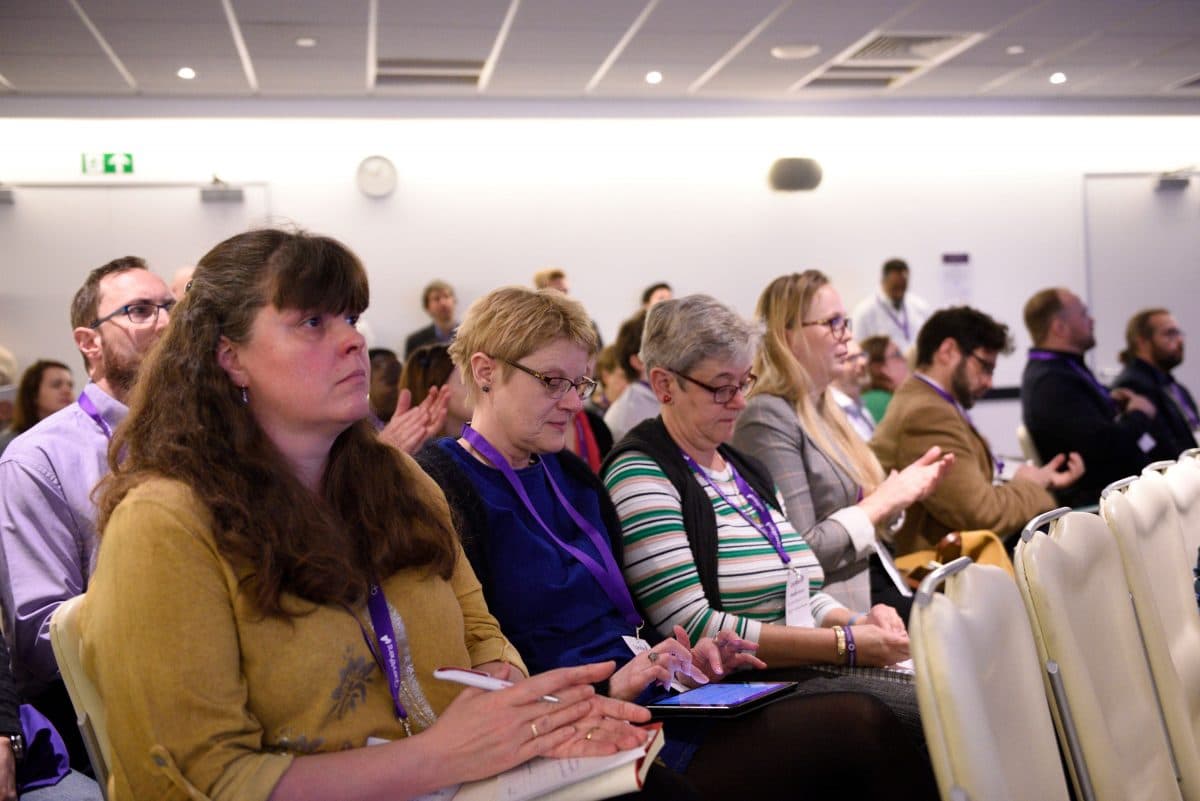Discover Access Lab 2021
Access Lab is the place where libraries, publishers and library users can discuss challenges and solutions around discovery and access to digital content and services. Find out more on the main event page.
Lo sentimos, esta página no ha sido traducida aún.

This session will look at emerging trends in the delivery of patron services, and the ways in which the current pandemic is accelerating digital innovations librarians have long wanted to implement. The speakers will look at the ways in which libraries are evolving from a content-centric role, centered around the physical library and a range of linear library systems, into a patron-centric role, centered around supporting strategic institutional goals in student learning and research impact, where library systems can be taken out of the library and delivered directly into patron workflows. This will include an overview of relevant activity within the library community, trends to spot and some predictions for the next few years. Matthew will be joined by a library partner to present a case study of delivering library services at the point of patron need, directly into the online workflow.
Matt Hayes, managing director, Lean Library and Matthew Smith, Academic Engagement Librarian at University of East Anglia

This session will discuss the challenges – and solutions – of implementing OpenAthens at a University that uses Shibboleth as their IdP. It will also cover how this implementation model works with the SeamlessAccess service – a non-profit initiative designed to improve the user experience for federated access. Topics included: how Boston College librarians needed to learn the unfamiliar technical landscape of SAML authentication; the challenges around working with campus IT; and how we navigated the differences in federated access configurations across publisher platforms. This session is from the perspective of a librarian at Boston College who also serves on the SeamlessAccess Outreach Committee.
Emily Singley, Associate University Librarian, Systems & Technical Infrastructure, Boston College

This session will explain the main function of an identity federation and give a brief overview of how the UK Access Management Federation’s ecosystem enables institutions and publishers to join using any SAML-based software. We’ll go on to explain how OpenAthens supports participation in the UK Federation. Through case study examples, we’ll show how our SAML-based software integrates with Microsoft Azure and other software for a simple, seamless user journey to content. Finally, we’ll discuss some of the work we’ve been doing with Seamless Access and publishers to streamline users’ login journey.
Mark Williams, Identity Verification Services Manager – Jisc

The University of Salford has a number of partner colleges, and students of those colleges are given university IT accounts. These accounts provide access to email, the VLE, and other services, including OpenAthens. However, whereas a ‘mainstream’ student has access to the full range of university e-resources, our contracts with suppliers limit the e-resources that can be made available to partner college students. To comply with this, we have worked with our central IT department to integrate Azure AD accounts with OpenAthens, using a status code from our Student Information System to identify partner college students. We use this information, via our Ezproxy configuration settings, to redirect partner college access requests from ‘proxied’ to direct SAML connections. We also use it, via our OpenAthens configuration settings, to block or modify users’ direct SAML connections to selected resources. This presentation will cover some of the technical details of our implementation of granular access for partner college students.
Andy Bourne, digital librarian, University of Salford

In a time of big data and artificial intelligence, how do libraries and publishers navigate the options available to modernize the scholarly ecosystem and shape the information experiences they design for scholars and educators? From her perspective as a digital product research/development consultant to technology and content providers in professional and scholarly publishing, Lettie Conrad will provide an overview of the prevailing trends in using data to better understand and interact with our online user communities. She will discuss opportunities for identity management, developing user-centric performance benchmarks, and low-fi options for ensuring products and services are inclusive and accessible to all. Lettie will discuss cases in how service providers and publishers are leveraging both qualitative and quantitative data points to understand today’s researcher and learner practices.
Lettie Conrad, Scholarly Kitchen chef and publishing & Product R&D consultant, LYC Consulting

UpToDate is a popular clinical tool in medical education and healthcare, and it is heavily used at Touro University Nevada (TUN). When our institution announced its migration to OpenAthens from EZProxy, it seemed to be unclear whether UpToDate would support the new authentication system. Doubt and panic set in as our library searched for answers from other libraries and online forums that did more to complicate than alleviate. Over one year later, TUN is here to share experiences and lessons to efficiently assume the role of long-term technical support.
Faye Mazzia, electronic & technical services librarian, Touro University Nevada

Not having a national identity verification platform was causing multiple challenges for local NHS organizations, patients and the public. Local NHS organizations were investing in local identity verification solutions, which lacked standardization and interoperability. At the same time, patients and the public are often required to create different accounts, in different places, for different health services. NHS Digital developed a national service to resolve these issues: NHS login.
This session will outline the main drivers behind the project, benefits to patients and key stakeholders, some of the results his team have seen so far and ongoing work with partners to integrate services.
 ClinOwl is sponsoring our opening keynote with NHS digital. With over 30,000 articles organized into over 30 clinical specialties and sub-specialties to date, ClinOwl provides a wider, wiser view for busy healthcare professionals and researchers worldwide. Visit https://clinowl.com/ to find out more.
ClinOwl is sponsoring our opening keynote with NHS digital. With over 30,000 articles organized into over 30 clinical specialties and sub-specialties to date, ClinOwl provides a wider, wiser view for busy healthcare professionals and researchers worldwide. Visit https://clinowl.com/ to find out more.
Darren Hutton, product owner – NHS login, NHS Digital

Access Lab is the place where libraries, publishers and library users can discuss challenges and solutions around discovery and access to digital content and services. Find out more on the main event page.